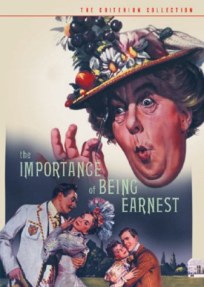Where you grew up and the life you’ve led determines the types of circles you are comfortable in. People of each elemental origin typically have different customs and a member of the aristocracy from the land of fire may behave quite a bit differently from one from the water capital. Curiously, despite their distance people that share the same elemental origin also tend to share the same cultural quirks. We call this [Etiquette].
[Etiquette] is useful when interacting with people of that etiquette whether you are trying to curry favor or even trying to impersonate a member of that social standing. It also determines your starting [Contact], a person of similar etiquette and culture whom you trust that can supply you with favors or information. Everyone has an etiquette tied to their home turf, which will be divided by element and relative social standing. Different cities have different socioeconomic backgrounds; some have a large strata while others may be more homogeneous. Our social abstraction comes in nine broad categories listed below.
- Aristocracy:
- You are blessed with money, power and privilege. Typically associated with a disdain for those lower on the social ladder.
- Academic:
- The pursuit of knowledge is a lifelong goal and you get along remarkably well with those who share your passion for learning.
- Polis:
- You are well-accustomed to city life and its benefits. You understand the duty all citizens have to help maintain this way of life.
- Frontier:
- Life on the frontier is difficult but rewarding. You live free from the influence of the city but cut off from its modern conveniences and restrictive laws. Baronies and frontier justice rule in this part of the world.
- Wayfarer:
- Roaming the land takes you through many walks of life. Vagabonds, nomads, travelers and bandits all call the road their home.
- Tradesman:
- Is not a man entitled to the sweat of his brow? The sounds of fires in kilns, undulating shipments in ports afar and the earthen footsteps of flocks in fields are all familiar to those who follows the sounds of coins clinking in idle hands.
- Artisan:
- Emphasizing quality over quantity, artisans produce the best products they can, catching the eye of wealthy patrons. Whether it be fanciful clothing or exquisitely baked treats, artisans are renowned for their skill and presentation.
- Outlaw:
- The law of the land claims to be fair, but people always slip through the cracks. Whether defying the law or simply ignoring it, an outlaw has little use for modern governing.
Each Etiquette is associated with the Element in your Origin, as the culture of each element tends to vary widely between far-flung citizens. Each of the example cities under each element should give you an idea of the kinds of people living there. For instance, Ganymede attracts many of low social standing, so common Etiquette might be {Water: Wayfarer, Tradesman, or Outlaw}. On the other hand, Agni Mani is a hive of merchant trade, senatorial dealings and wealthy guilds, so {Fire: Aristocracy, Polis, or Artisan} would be common choices for one who lived there. Some concepts can easily fit into two of these categories, such as a traveling merchant (Wayfarer, Tradesman), an armorer for the ceremonial guard (Tradesman, Artisan), or a member of the thieves’ guild (Polis, Outlaw). Players may choose one etiquette to associate with their Origin’s Element and may develop another through the course of play. Those with the Guile Attribute begin with two and may [Burn Intrepid] to pass off their etiquette as a different Element which makes them excellent imposters.
Professions
In addition to where you grew up, you may wish to select a past profession to give you an idea of your capabilities. You may come from humble beginnings, be a worldly traveler, or perhaps raised in an affluent household with political clout. Each of these will survive in the world in different ways; the woodsman has no issue living off the land while the senator’s daughter wouldn’t last more than a few nights. Conversely, the woodsman would easily butcher several layers of etiquette at the Baron’s manor that the courtesan would have easily skirted by. Backgrounds tell your GM what is already within your capabilities without resorting to your Prime Ability Scores. Below is a list of example professions organized by which Prime Ability Score would be most useful for each line of work.
Example Professions
[Vigor]:
Porter, Smith, Athlete, Farmer, Oarsmen, Palanquin Bearer, Herald, Mason, Miller, Fisherman, Caravanner, Enforcer, Guard, Soldier, Shepherd, Lumberjack, Undertaker
[Agility]:
Street Performer, Sailor, Dancer, Horseman, Courier, Scribe, Carpenter, Sculptor, Forester, Charlatan, Machinist, Launderer, Field Medic, Tailor, Glassblower,
[Perception]:
Artisan, Brewer, Cook, Dyer, Cartographer, Musician, Locksmith, Detective, Sentry, Gardener, Soothsayer, Trailblazer, Appraiser, Barber, Yeoman, Lawman, Animal Tamer.
[Revelation]:
Sage, Doctor, Herbalist, Money Changer, Arbitrator, Barrister, Linguist, Scholar, Priest, Navigator, Architect, Papermaker, Shipwright, Apothecary, Tinker
Your Origin encapsulates who you were and where you’re from. It tells us what your favored element is and in what areas your background will give you an edge. You may be a shepherd in the Valley of the Wind; a porter in the countless cities by the sea; a huntsman from the treetop villages; or a machinist from the lands of cracked plains and smoke-top mountains. Your Origin defines only your past—it is up to you to determine your future.

No comments:
Post a Comment